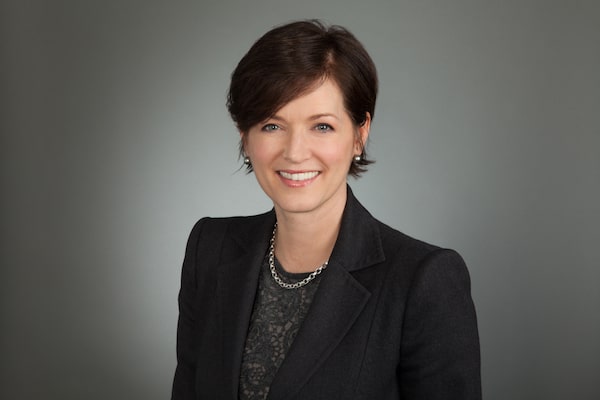
Cybersecurity concerns need to be top of mind for firms to ensure that virtual client conversations are protected.fizkes/iStockPhoto / Getty Images
Advisors have dealt with a lot of change over the past couple of years, due in large part to the pandemic, which has disrupted their operations and created unprecedented market volatility. More adjustments are expected in 2022 as COVID-19 persists and market uncertainty is likely to continue.
Margaret Franklin, president and chief executive officer of the CFA Institute in Charlottesville, Va., says she believes the focus for advisors this year will be on how they work – especially now that clients are used to online interactions.
There will also be increased attention on environmental, social, and governance (ESG) issues and the anticipated reversal of longstanding secular trends such as rising inflation and interest rates amid the unwinding of government stimulus.
“It won’t be a smooth path,” Ms. Franklin warns, adding the onus will be on advisors to construct resilient portfolios for their clients amid these evolving environments.
Globe Advisor spoke with Ms. Franklin about the challenges and opportunities facing the industry in the year ahead:
How is the ongoing pandemic reshaping how advisors work internally and with clients?
The pandemic’s shift to working from home forced many organizations to re-evaluate immediately not only how they communicate with clients, but also their use of technology, from a cybersecurity infrastructure as well as regulatory and risk management perspective. That’s going to continue to feature prominently as we head into the third year of the pandemic, but I think the industry has done a pretty good job overall to date.
As for communication with clients, it appears they’re very happy to connect remotely. The pandemic has recalibrated everybody’s expectations around that and we’ll see more detailed discussions taking place virtually as we move forward. That brings us back to cybersecurity considerations and firms ensuring that those client conversations are protected.
How will the industry continue to adopt and adapt to the increased focus on ESG?
The focus on ESG today is largely around two areas: climate change and diversity.
With climate, COP26 [the recent United Nations Climate Change Conference] was a good catalyst and 2022 is where the real work begins around how we [as a society] will get to net-zero [carbon emissions]. Also, what are the roles of asset owners, asset managers, and advisors?

Ms. Franklin says there's public and private capital coming together right now in a way that generally only happens every 50 years or so.Liz Floyd/Handout
For advisors, it’s largely around educating themselves to be capable of having meaningful conversations with clients. To help with that, the CFA Institute recently launched an ESG certificate that gives investment professionals the tools and capabilities to be competent in that space.
We also introduced our global ESG disclosure standards for investment products, which gets at the very heart of greenwashing. That’s important as we’re starting to see more consensus around ESG frameworks, which more clients are demanding. More clients are also beginning to understand the risks [of not addressing ESG] in their portfolios.
What’s encouraging is that, for the first time, we’re seeing the entire ecosystem pulling toward [this trend]: clients and society are demanding it as well as governments, policymakers, regulators. and the broader financial system.
In terms of diversity, our industry remains very homogenous. It’s still largely white and male, and I think we’re going to come under more scrutiny. I see companies working really hard on this file and we’re going to compete for talent in a way we haven’t before. And I think we’re going to be a better industry for that diversity.
In terms of secular trend reversals such as rising interest rates and easing monetary policy, how will advisors need to prepare?
They need to be ready for what’s expected to be a volatile market. Factors such as rising inflation and interest rates could have a significant impact on portfolios. Liquidity could also be an issue as we retrench from government stimulus.
Advisors will need to think long and hard about their portfolio construction as a result of these changes. It’s a great time to go back to clients and stress test what they need, what their objectives are, and focus on scenario analysis. Advisors are already doing this, but it’s a really worthy area for them to be focusing on.
There will be many challenges in the year ahead, but what are you excited about?
I am really excited about the opportunity for finance as a force for good – the concept of building back better.
I recently sat in on a panel of portfolio managers who spoke about infrastructure and real estate, and the conversation was about joining up and building out communities. It was about rethinking: What makes a strong community? Things like infrastructure and education and reimagining them.
It feels like a moment at which we have public and private capital coming in and incentives coming together in a way that generally only happens every 50 years or so. It’s a moment in which our industry can make a difference.
I’ve been in the business for more than 30 years and I’ve never been more excited about what’s to come, even though the backdrop will also be incredibly challenging.
This interview has been edited and condensed.
For more from Globe Advisor, visit our homepage.